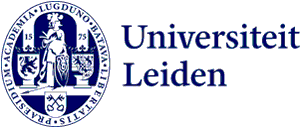
Is there room to challenge the status quo at universities?
How is academic freedom restricted by the academic community itself? This was the central question at a debate at Leiden University on 14 November. Topics ranged from diversity policy and the Israel-Gaza Conflict to Recognition & Rewards and research that challenges the mainstream.
‘When we talk about open debate in academia, we often focus on external pressures like politicians and the press,’ said organiser Sense Jan van der Molen, a physicist and co-author of a report on academic freedom. ‘Today we want to look at internal influences. To what extent do they limit scholarship and academics’ ability to speak freely?’
Diversity policy
Esmé Bosma opened the debate with a presentation on diversity policy. During her PhD at the University of Amsterdam’s Department of Political Science, she opposed plans to register sex, ethnicity and other personal characteristics.
‘Promoting equal opportunities is important,’ she said, ‘but dividing people into categories is, by definition, discrimination.’ The registration plan was ultimately dropped.
Bosma can see that many people are wary of the topic of diversity. Some people believe someone’s identity prevents them from speaking on certain issues, whereas others self-censor, saying, for example, ‘As a white man, I can’t say that...’
‘The “as a... debate” creates an “us and them” dynamic,’ said Bosma. ‘That makes open discussion harder.’
Recognition & Rewards under fire
Next, Biochemist Raymond Poot (Erasmus MC) argued that researchers should be assessed on the number of publications, the quality of journals they feature in and the number of citations. He had a bone to pick with Recognition & Rewards, which also evaluates researchers on leadership and teamwork, for example.
‘How do you measure teamwork, team science and their effects?’ He referred to research showing that funding based on academic performance delivers the greatest societal impact.
Poot noted that most STEM and biomedical researchers oppose Recognition & Rewards, adding that the minister responsible for academia policy should intervene and consult critics.
An audience member disagreed, noting that much was wrong with the old system. ‘It was at the expense of teaching because it focused only on publications and squeezing as many publications as possible from one tiny bit of data. Recognition & Rewards aims for a greater societal impact.’
Against an academic boycott of Israel
With the title ‘Silence, Zionist. How ideology colonised our universities’ philosopher Maarten Boudry (University of Ghent) set the tone for his presentation. He described the ‘suffocating’ climate in Belgium for pro-Israel views, something he experienced himself after writing an open letter about how one-sided, unfair and counterproductive an academic boycott of Israel is.
‘It was incredibly hard to find others who were willing to sign, even among those who agreed.’ The responses he received showed people feared social backlash and career damage.
Boudry said it was concerning that academics can no longer speak freely. He warned that universities have bowed to activist pressure and urged more people to speak out against a boycott of Israel. Then the repercussions would be less severe.
Research challenging the mainstream
Migration researcher Steije Hofhuis from Berlin Social Science Center wondered whether academia allows space for research that challenges the mainstream. He asked the Dutch Research Council (NWO) this and was assured that such studies do exist, but felt the examples he was given did not show this.
Hofhuis cautioned against the ‘internal threat of one vision dominating academia that no longer permits other perspectives.’ Welcoming unpopular voices within the scientific community strengthens academic freedom. He called for restraint in diversity and inclusion goals that shape research agendas. He also wants greater ideological variety in grant and hiring decisions, and a fund for research that challenges the mainstream.
Left-wing
Finally, legal scholar Elif Erken (Utrecht University) claimed that Dutch universities are overwhelmingly left, leading to a lack of ideological diversity. This limits the academic debate and increases the risk of self-censorship: researchers sometimes keep their opinions to themselves for fear of social exclusion or career consequences. She sees this as a threat to academic freedom and called for more space for diverse worldviews. Critical research was essential, she said, to prevent one dominant vision from suffocating debate.
Community. Conversation. Connection.
The debate on 14 November was one in a new series of meetings: Community. Conversation. Connection.
Global tensions are also making themselves felt within our university community. We want to reverse this trend. That is why we are making room this academic year for lectures, debates and meetings about today’s hot-button issues: war and peace, intolerance, human rights, polarisation, securitisation, climate and more.
Let’s get together and listen to each other. Let’s hold an open debate. This is, after all, the beating heart of our university. It’s fine to disagree, as long as we treat others and their views or beliefs with respect.
We are inviting all members of our community to take part in Community. Conversation. Connection. Conversation. Connection. You’re welcome to sign up for an event – or to organise your own. Keep an eye on our events calendar.
